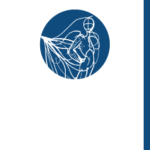Abstract
Our government has enacted restrictive and isolation measures, also in the field of rehabilitation, to combat and
contain the spread of the SARS-CoV-2 virus. These have had a major impact on the working methods and activities
performed by the Speech Therapist. The Board of Speech Therapists of the Interprovincial Order of NA-AV-BN-CE
conducted an anonymous survey to observe the phenomenon.
The study aimed to assess how and to what extent the health measures in place influenced occupational activities and
work-related discomfort.
A questionnaire was structured to investigate, anonymously, different areas of professional interest (how therapeutic
activities are carried out, work-related stress management, changes in human relations, specific needs), disseminated
via the web thanks to the Google platform, and available from 15/06/2020 to 15/11/2022 for all speech therapists
belonging to the interprovincial order of NA-AV-BN-CE.
161 Speech Therapists, aged between 21 and 40 years (73.9 per cent), took part in the survey. They worked mainly in
a combined telerehabilitation and outpatient setting (64.12 per cent), and were provided with appropriate PPE for the
treatment (65.8 per cent). Speech and language therapists reported a low to medium level of frustration (63.9%) and
work-related stress (63.4%) for telerehabilitation treatment, to a high level for outpatient or home treatment (69.6%).
Medium to high values (81.4%) of anxiety, worry and work-related distress are reported, favoured by social isolation
and a perception of less support among colleagues, with a perceived need for psychological support from specialised
figures to manage the emotional burden.
The results suggest a medium to high level of work-related discomfort during the pandemic period, mainly for speech
therapists who performed outpatient/domiciliary activities, entailing the risk of developing psychological distress.
Further research should be undertaken, with multicentre and larger sample size studies, to define the relationships
between the working methods promoted, work-related stress and the need to manage it.

This work is licensed under a Creative Commons Attribution 4.0 International License.
Copyright (c) 2022 Verlanti Girolamo, Sivo Tiziana, Zupi Maria Francesca, Brancati Federica, Panizzolo Sara





